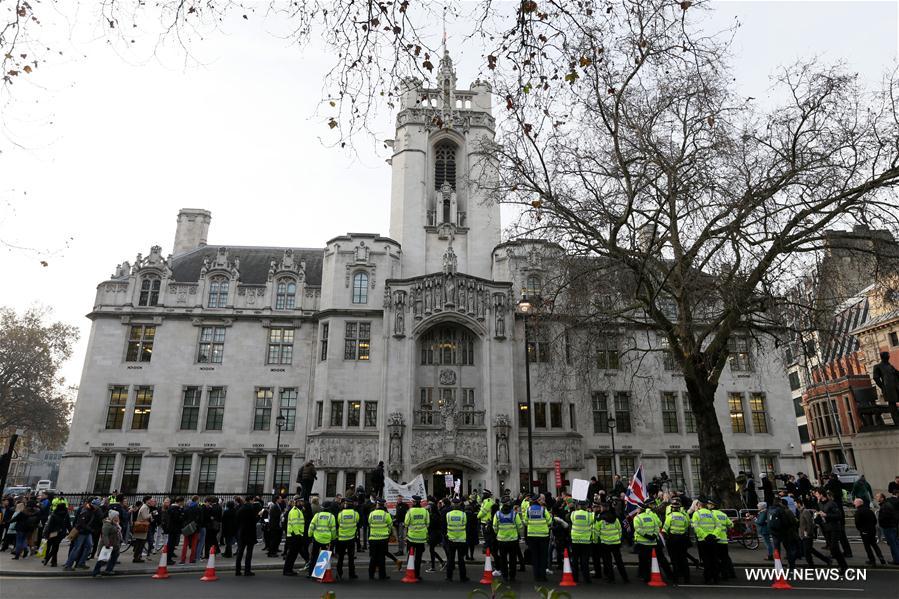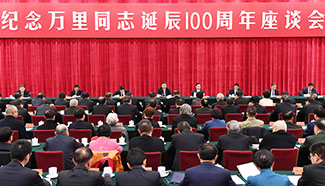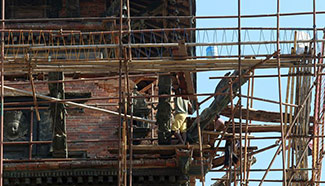
A general view of the Supreme Court in London, Britain on Dec. 5, 2016. The British Supreme Court on Monday morning started hearing the historic Brexit legal case to decide whether the British government can begin the process to pull Britain out of the European Union (EU) without a parliament approval. (Xinhua/Tim Ireland)
LONDON, Dec. 5 (Xinhua) -- The British Supreme Court on Monday morning started hearing the historic Brexit legal case to decide whether the British government can begin the process to pull Britain out of the European Union(EU) without a parliament approval.
Protesters from both the leave and remain camps gathered in Parliament Square to demonstrate their feelings ahead of the case in the nearby courthouse, where the Supreme Court will be hearing four days of legal arguments and submissions. Some were waving EU flags to show their strength of feeling about wanting Britain to remain in the EU.
The government has insisted it has the power and authority to start the exit process by triggering Article 50 of the Lisbon Treaty, the formal gateway for a member country quitting the EU.
Theresa May wants to trigger article 50 by the end of March. But the High Court heard a challenge to May's plans and ruled that the Houses of Parliament must be in the driving seat.
May's government appealed against that ruling and the 11 judges in the hearing starting Monday will make a definitive decision. If the judges uphold the High Court decision, it will mean May having to involve parliament in her Brexit plans. May's supporters fear that politicians could use that process to delay or even sabotage Britain's exit from the EU, even though the majority of people voted to leave in the June 23 referendum.
On the other hand if the judges, when they announce their decision in January, agree with the government, it will pave the way for May to start the process without seeking the approval of parliament.
Commentators say that what is really on trial in the hearing is democracy and the authority of the government.
At the start of the hearing, Lord Neuberger, president of the court, said the Supreme Court exists to decide points of law which fall within its jurisdiction.
"The Justices of the Court are of course aware of the public interest in this case. And we are aware of the strong feelings associated with the many wider political questions surrounding the United Kingdom's departure from the European Union," he said.
"However, as will be apparent from the arguments before us, those wider political questions are not the subject of this appeal. This appeal is concerned with legal issues, and, as judges, our duty is to consider those issues impartially, and to decide the case according to the law. That is what we shall do," he said.
The judges were not in their traditional ceremonial robes for the hearing, though it is the first time in history all law judges have sat together.
That is an indication of the constitutional and legal importance of the case.
The somber atmosphere of the wood paneled courtroom was in sharp contrast to the noisy demonstrations outside the historic building close to the Houses of Parliament.
The first full day of the hearing will be taken up with the government's Attorney General Jeremy Wright contending that the government, using centuries old powers, had the right to start the process. He also insists that parliament legally approved the referendum handing the decision to the people of Britain.
Later in the week, the judges will hear lawyers representing Gina Miller, the wealthy businesswoman who originally took the case to the High Court to force May to hand the decision of triggering article 50 to parliament.











